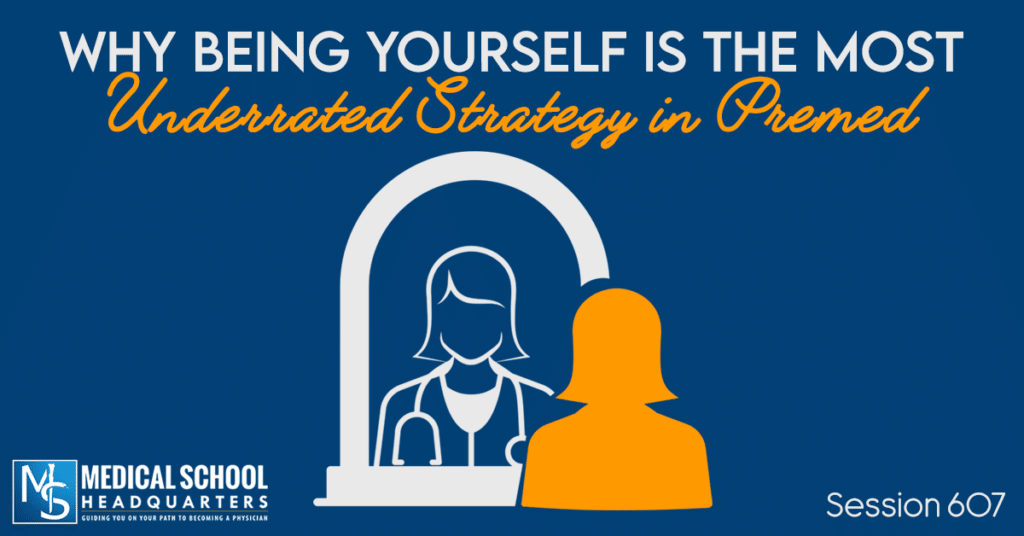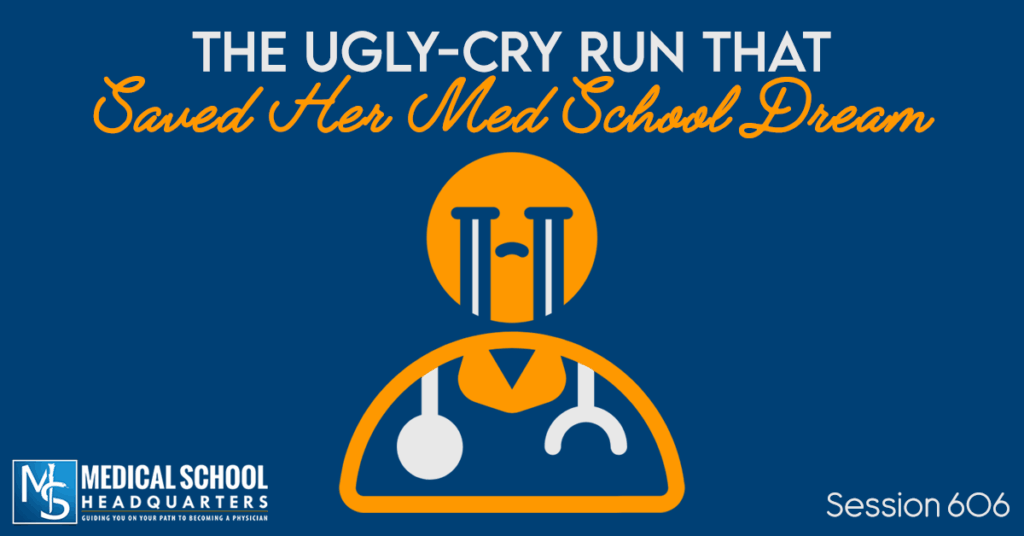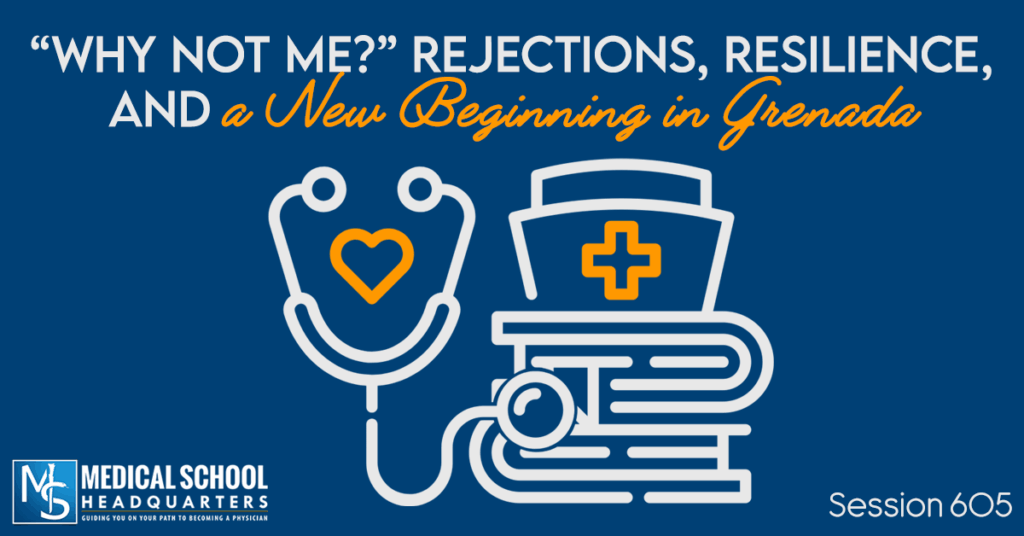Who are you?
My name is Ramses Perez, I am a 27-year-old MS1 at FIU Herbert Wertheim College of Medicine in Miami, Florida. I was born in Cuba and came to the US when I was 4 years old. I actually originally wanted to be a police officer and help others by protecting them from criminals.
I eventually was drawn to health care and entered the field as a registered nurse, where I worked for several years in Step Down ICU and the emergency department. I went to undergrad at Florida International University, the same school I am now attending for medical school (Go Panthers!).
My hobbies include writing, photography, and playing guitar during my leisure time.
What did you major in?
Associate in Nursing, Bachelor in Biology
[Related Post: Picking an Undergraduate Program]
Why do you want to be a physician?
I want to be a physician because it’s the best way I believe you can help a fellow human being. A car salesman can help someone save money and help them find a good car for their needs, a school teacher can help someone by laying down a solid foundation of education. However, I believe the ultimate contribution to society and humanity is helping others improve their health and in some cases, save their lives. I see physicians as superheroes in the flesh.
As a nurse working with physicians, I saw the dedication and love they have for their profession and for their patients. I admire not only the intense knowledge and training it requires to get to where they are but the continuous learning they commit to for a lifetime.
In addition, their absolute autonomy to make decisions and have ownership of their patients make medicine not only a great challenge, yet likely very rewarding.
What was the most challenging part of being a premed student?
Surprisingly, I believe the most challenging part was myself.
I think most of the challenge was my own psyche. Thinking back, it was maintaining the right mindset for a long period of time even when natural thoughts and emotions tell you otherwise.
Getting into medical school is hard. You have countless requirements you have to meet such as research, personal statement, MCAT, extracurriculars, GPA etc. It is easy to feel down when you look around and compare yourself to others who always somehow always seem to have everything together. The truth is that it is an illusion, and everyone is on the same boat and can get in if they really want to. That illusion of insufficiency is largely psychological and if you know what to do with those emotions, you will always succeed.
My situation was even more psychologically difficult because of my very low GPA and extremely bad grades in the beginning of my academic career. When I was neck deep in physics or frustrated with an organic chemistry exam, it was very easy for thoughts of failure and frustration to set in and to think, “Why am I doing this? I will probably not get in anyway”.
The challenge is not to fight all the emotions. They will happen. The challenge is to have the courage to feel all of it and still do your best and apply anyways.
[Related Post: How to Fix a Medical School Application After Starting Premed Poorly]
Who did you lean on for support?
Having support is extremely important. Not so much for logistical support (like how to enter information into AMCAS or AACOMAS or which courses to take) but more for emotional support.
My support system was my friends in undergrad. It was spiritually and psychologically soothing to have people that are going through the same hurdles as you are and that alone helps to push you forward. You can call them when you got a bad quiz grade and vent or you can ask them for advice on how they got a good score etc. The important part is the social component.
Additionally, my parents and my family were my support at home, which is a big plus if you choose to stay at a local university and something to think about for those choosing where to go to undergrad.
I cannot stress enough the importance of mental health in this process and to keep yourself around people that energize you.
If you had a mentor, how did you find him/her?
It’s going to sound corny and staged but I promise it is not.
My mentor is actually Dr. Ryan Gray and Medical School Headquarters. I stumbled upon The Premed Years podcast years ago and have listened to each episode.
Surprisingly, it worked out nicely since he is now doing a podcast for medical students with the Specialty Stories podcast, which I have switched over to.
So thank you Ryan, I truly owe the knowledge and motivation to continue from hearing other success stories, and I am hoping I can do the same to other people with my story.
[If you want to submit your own success story, do that here]
What was the best general premed resource?
As I said previously, I listened to The Premed Years podcast extensively and was the resource where I got the most information from throughout the application process.
What was your relationship like with your school’s premed advisor (assuming you had one)
It was a very good one. To be honest, I stayed away from going to my premed advisor until one of my last semesters, once I had several semesters of good grades and raised my GPA. The reason being that I had a bad experience with an advisor at a community college where I attended. I went to see her to inquire about nursing programs when I was interested in starting a healthcare career.
Upon seeing 11 F’s in my transcript (Yes 11), she basically said there way no way I could ever get into nursing school with those grades and the competitive nature of the process. Leaving her office, it was one of the lowest emotional times I can remember. So I stayed away from my premed advisor until I could prove to them that I was serious about doing this.
Generally, I would tell anyone to find good resources that are not only accurate but that give you confidence and motivate you. Many advisors in my experience discourage less than stellar applicants from continuing and don’t put enough emphasis on motivation.
The two resources premeds should look for is logistical help (how to apply, prereqs), and motivation (support system).
What was your hardest class?
My hardest class was physics basically because of the challenge of converting real scenarios into math problems and then solving them under the pressure of time. What I did to help me was to access tutoring services to help in the weak areas and purchase study books that were known to help other students with physics. The key is to realize your weak areas and fix it before the exam, not after!
Also, my advice is to take other people’s “hard class” with a grain of salt. Everyone has a different opinion and are going to give you different classes. There is no “weed-out” course as they commonly say. You will know which one is the hardest for you when you are there, focus on your current courses.
What was your most impactful extracurricular?
I think the most impactful extracurricular was my experience as a nurse. Of course, I would not recommend becoming a nurse with the thoughts of entering medical school, but it did help me start a conversation during interviews and probably helped with the initial selection. I think the best advice is to find one or two non-academic things that you are good at, are unique and amplify an extracurricular experience. I would avoid the “cookie-cutter” activities like mission trips and joining clubs.
The important thing is the meaning that the extracurricular has to you, and what type of person they perceive that you are because of that commitment to the activity.
What would you change?
It is going to sound corny but I would not change a single thing. The good and the bad was absolutely necessary to get me to my current position.
How did you prepare for the MCAT?
I used the Princeton Review and I highly recommend it. I think they probably have the most comprehensive books and they give you just enough extra information to understand the concept rather than just the basics, where it would be very difficult to understand without previous knowledge. I took about 5 full lengths including the one from the AAMC. I took their online course and it included their books. (I’m not affiliated with Princeton review by the way)
By far however, the best way you can do to prepare for the MCAT is not which resource you use to review, but learning the content well initially with your undergraduate courses. If you understand concepts well during your classes, MCAT prep will truly be a review and you can master more content and at a faster pace.
[Related Post: Best MCAT Course]
[Promo Code: Use the promo code “MSHQ” to save 10% on Next Step Prep full-length practice exams.]
Roughly how much did you spend on MCAT prep?
About $2000 for the online course
[Related Post: MCAT Prep on Any Budget]
What were your top MCAT resources?
I only used Princeton Review self-paced online course with their included books as well as the AAMC practice test.
What would you change about your MCAT prep?
Looking back I would probably put a bit more emphasis on understanding concepts rather than memorizing things. It seems the MCAT tests your ability to apply concepts to new and unfamiliar situations, and so they try to make things as complicated as possible. However, if you stay confident and stick to the basics, you’ll be able to solve it.
How did you prepare for your applications?
Again, The Premed Years podcast was extremely helpful and I largely used that to help prepare for the application. It is also helpful if you can find someone that has already applied and they can help clear up any questions on how they input information or input information.
Also for personal statements, I used friends and family to help not only proofread but to give me their input on what I should add or delete.
[Personal Statement and EC Editing Service]
Roughly how much money did you spend on applications and interviews?
I really don’t have a number but it is a lot of money. I always tell people however that it is an investment that you are making and if it is feasible, you should apply to the schools you want to attend.
How did you choose what schools you applied to?
I chose the schools based largely on geography, reputation, and mission statement as well as the likelihood of getting an interview based on their history.
Many people say go to the MSAR and look at the MCAT and GPA and see where you fall. However, I don’t think this is a good idea because it is an average. It means that many people scored less than that number and it does not give you the statistics for you as an individual.
[Note from Dr. Gray: The MSAR data shows the MEDIAN, not the average (mean), which is a common misinterpretation of the data. Half of the class is above the number you see, and half is below.]
The best way to choose a school is to look at the location and mission statement. The big question is, “Do I see myself happy here and would I actually come here if they said yes?”
I would also recommend applying to all your state schools as you have a higher probability of getting accepted in your state, and they tend to be much cheaper!
I also applied to a few close DO schools as well based on geography and reputation for being a great school with happy students.
How did you prepare for your interviews?
I did about 3 mock interviews with friends, and I think it definitely helped. I think the most important part is to be prepared for questions ahead of time and to know about the school that you before you interview. It really helps to be knowledgeable and interested in where you are interviewing. The best strategy is to be prepared. Then when you feel comfortable, doing a few mock interviews to get an opinion of ways you can improve definitely helps.
Why do you think you were a successful applicant?
To put things in perspective, I applied to about 50 MD schools in the US and was invited to 31. I attended 21 interviews and was accepted to 18 MD schools, including an ivy league.
I applied to so many schools because of my very low GPA, however, I was praying for one acceptance, I did not know that my application cycle would be nearly as successful.
My MCAT score definitely helped, which was in the top 10%. It really helped offset the very low GPA by showing it does not reflect my academic abilities.
I think the second component was the ability to turn things around. I think the admissions committees are particularly receptive to people who have been at a low point in their lives and turned things around drastically. For instance: A premed school application shows 11 F’s and a 1.8 GPA, amid personal life circumstances, then the same student applied for academic forgiveness, and graduated summa cum laude. I think at the very least the story gets attention.
With similar circumstances, I was accepted and ultimately offered a full scholarship at the school I am attending now.
Dr. Gray’s Notes
Ramses has a great story of overcoming obstacles—11 F’s and an advisor who told him no. As a former nurse, Ramses has been involved in medicine, and now wants more! It seems to be a very common path for many nurses. I’ve interviewed several on the Premed Years podcast. No matter what your journey is, or the roadblocks in front of you, if you want to be a physician, figure out how to make it a reality.
Want to share your story?
If you’ve been accepted to medical school, or are a medical student, share your story with others to encourage, inform, and motivate them to continue down this path! Go here and fill out the form: https://medicalschoolhq.net/premed-success-story-submission/






